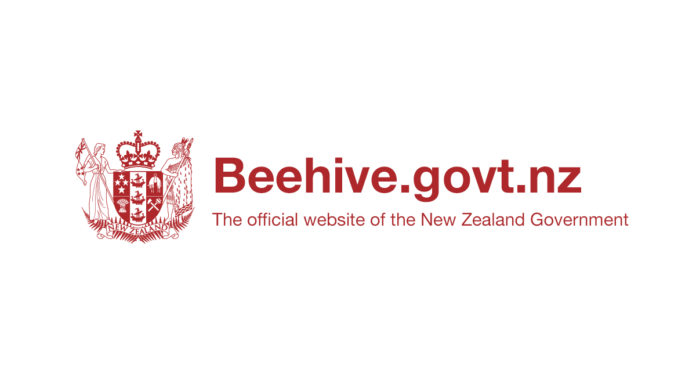Source: New Zealand Government
Tēnā koutou katoa, Fakatalofa atu, Mālō e lelei, Mālō nī, Fakaalofa lahi atu, Kia orāna, Tālofa lava, Ni sa bula vinaka, Noa’ia, Mauri, and warm greetings to you all.
I’d like to begin by acknowledging Richard Benge and his wonderful team at Arts Access Aotearoa, for organising this evening’s awards, and for all that you do to increase access to the arts across the country. My congratulations also to Richard, on recently being made a Member of the New Zealand Order of Merit – a wonderful achievement, and richly deserved.
I’d also like to acknowledge my ministerial colleague, Hon Kelvin Davis, who will be presenting one of this evening’s Corrections Awards, and all special guests here this evening.
Creative spaces
Tonight’s awards celebrate the significant contribution of individuals, groups, and organisations in enhancing access and inclusion in the arts. They also highlight important developments in accessibility across a number of sectors, including one that is especially close to my heart – creative spaces.
Over the years, I know that Arts Access Aotearoa has worked with creative spaces to advocate for sustainable funding for the sector, so these community-based art spaces can build on what they already offer, and reach even more people – improving their artists’ mental health and wellbeing through access and participation in the arts.
In February this year, I was delighted to announce $18 million of funding specifically for creative spaces, to be delivered over three years through Manatū Taonga, the Ministry for Culture and Heritage. This initiative is part of the $70 million Te Tahua Whakahaumaru Creative Arts Recovery and Employment (CARE) Fund, which seeks to enhance access to, and participation in, the cultural sector; and to create employment and skill development opportunities.
Appropriately, Manatū Taonga has partnered with Arts Access Aotearoa to support both the application process and the recipients over the longer-term.
The funding for creative spaces has two key aims: increase participation in creative activities for people experiencing barriers to participation; and to create employment for creative professionals. That’s why I’m particularly passionate about creative spaces and the importance of them in our communities.
Creative New Zealand recently released a very timely piece of research: New Zealanders and the Arts, highlighting that more New Zealanders appreciate the arts’ powerful role in connecting whānau and communities – but that access to the arts could be improved. The research also showed that, while highly engaged in the arts, people with lived experience of disability are less likely to feel that the arts are accessible or inclusive.
This new funding for creative spaces acknowledges the value of creative spaces in improving access to the arts for diverse communities throughout Aotearoa, as well as the benefits for their participants of improved mental health, increased skills, greater self-esteem, and a sense of belonging and community.
Arts Access Holdsworth Creative Space Award
I am looking forward to presenting this year’s Arts Access Holdsworth Creative Space Award later this evening.
I understand that the recipient made a successful application to the Creative Spaces initiative, and its founder and facilitator made the heartening comment: ‘It was an absolute honour to receive this level of acknowledgement for our work, which has been very much a labour of love, and has functioned on very limited time and resources. This funding means we’ll be able to provide a space more frequently to more people. We’ll also be able to collaborate on more community projects and increase the profile of our artists.’
I’m excited about all the new opportunities this funding will provide for the creative spaces sector, and hearing stories about the difference it will make.
Arts For All
Another key area of Arts Access Aotearoa’s work is its partnership with Creative New Zealand and the national Arts For All Network.
Through this network, which includes six regional networks, Arts Access Aotearoa and disability representatives work with performing arts companies, venues, producers, and artists to increase their expertise and improve their accessibility. Despite the impact of Covid-19, Arts Access Aotearoa recorded an impressive 110 accessible events and services in 2020.
In that year, it also recorded 33 events featuring Deaf or disabled artists and writers. This is an important statistic, as Arts Access Aotearoa works to support Deaf and disabled artists and writers to develop their careers and thrive in the arts industry through a new initiative under development.
I look forward to learning more about the impact of this new initiative, and I hope this year’s recipient of the Arts Access PAK’nSAVE Artistic Achievement Award – as well as all the previous recipients – will be able to reap the benefits of this support over time.
Arts in Corrections
We all understand the power of the arts and creativity to transform our thinking; build new skills; increase our understanding and empathy; and simply make us feel better about ourselves and the world. It makes sense, therefore, that the arts can be a very powerful tool to support the rehabilitation of men and women in our prisons, and forge pathways to a positive, productive life.
Tonight’s recipients and those Highly Commended in the two Corrections Awards illustrate the passion, commitment, and innovation of those involved in their delivery. I’ve been told that the number and quality of nominations this year was outstanding, reflecting the impact of the work that Arts Access Aotearoa and the Arts in Corrections have been doing over many years.
Concluding remarks
Finally, my congratulations to Arts Access Aotearoa for the wonderful work it is doing, and to all those receiving awards tonight.
Thank you for all the work you do to make the arts accessible for New Zealanders. Your work ensures all New Zealanders feel connected, included, and capable.
To me, this encapsulates the vision of Arts Access Aotearoa.
Nō reira, tēnā koutou, tēnā koutou, tēnā koutou katoa.



